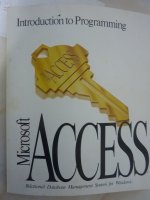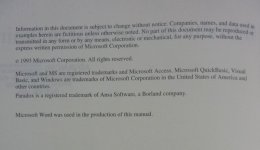Did you miss the part where I said we had to do both, in at least two different posts? Both means both, as in two. Or do you like to use partial snips of a conversation to try and prove your correctness? George I've understood the difference for over forty years now. However, I do not understand your haranguing attitude. Are you just an old, PNW-crank having fun being a snot on this site? If so, please just go bother someone else. I'm just trying to get help from those who've gone before me in trying to do some advanced things with Access.
I'm not sure what you meant by the last statement. Did you mean in the past or present with Access? I have figured out, with the help of others, that Access, despite all the pretty colors and unimaginable lists of properties, doesn't come close to operating well in the distributed environment we had 40 years ago. Hell, there isn't even a command in VBA to pause for a given number of seconds! And all this with powerful desktops, an almost always present Internet (which some people presume will always be available, like when it goes down in my pueblo I can't even get helps for Access), and almost thirty years to fix basic problems with queries on null joined yes/no fields that every first-year college computer student learns about (
http://allenbrowne.com/NoYesNo.html). In the last month that I've started again with Access I've read so many articles that say something like, "I can't use this feature in Access because it doesn't work in real-world situations."
The Access Web - Bugs: Index of Articles (mvps.org)


